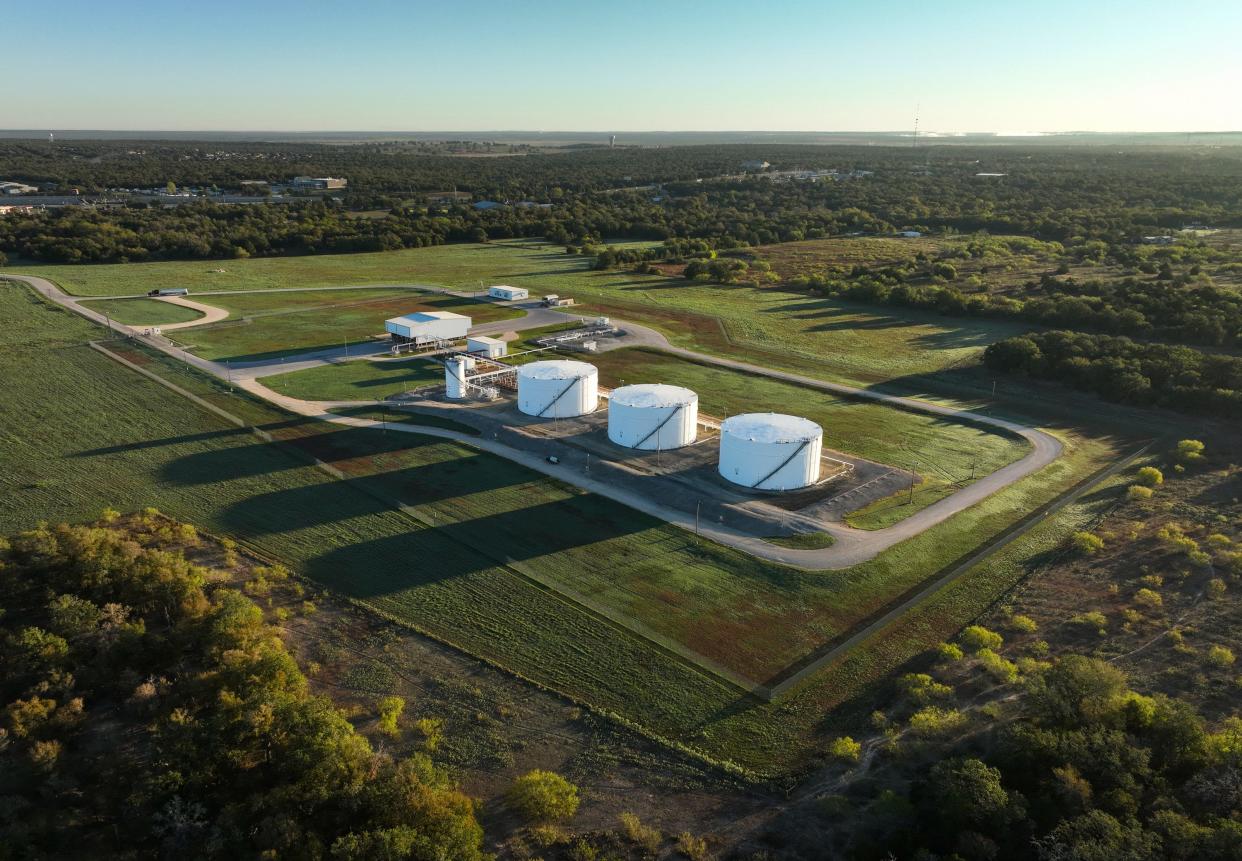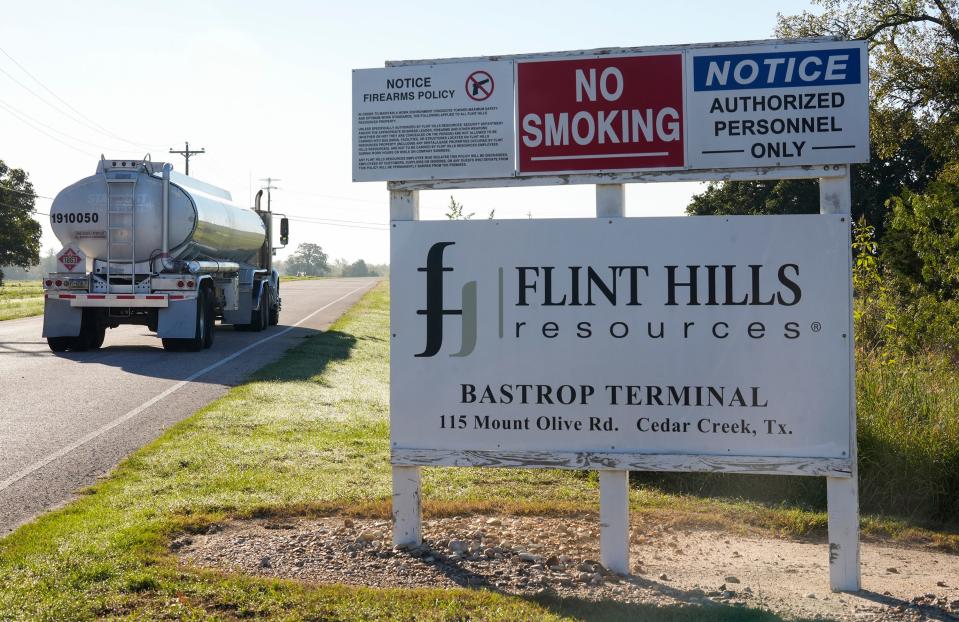Austin airport relies on 100+ daily tanker trips for fuel. Will a dedicated pipeline fix it?

The primary supplier of jet fuel for Austin-Bergstrom International Airport announced Tuesday its plans to build a dedicated pipeline between the company's fuel terminal in neighboring Bastrop County and the airport. The company says the new infrastructure would eliminate the truck-reliant fuel delivery system currently in use.
Flint Hills Resources provides all the fuel for the city-run airport's jet fuel facility near the west runway, which is used by all commercial and cargo operations. Given the considerable growth at the airport in recent years, especially post-pandemic, the company said the 8,000-gallon tanker trucks make more than 100 round trips between the airport and its Bastrop terminal per day to keep up with demand.
That system creates a bottleneck for the airport. The alerts resulted in a consortium of airlines, operating under the name AUS Fuels, advising airlines to fill up with more fuel than usual from their departing airport — a process that can create delays and has weight-balancing implications for aircraft flying to Austin.
AUS Fuels contracts with the drivers to deliver the fuel, said Andy Saenz, a Flint Hills Resources spokesperson.
So far this year, the airport has had 16 fuel shortage alerts, according to airport spokesperson Sam Haynes.
In a news release, Flint Hills Resources said the current "just-in-time, truck-dependent" fuel delivery system has had reliability issues. Though it recently expanded its three-tank Bastrop facility, the Koch Industries-owned company said increasing demand at the airport, traffic congestion and driver availability issues "continue to push the current airport delivery system beyond its design capacity."
In a statement, Haynes said the airport was looking forward to learning more about the project and how the project will "further safety, reliability and environmental stewardship for airport users and our community."
The proposed pipeline project — called the Bastrop-Austin Texas Pipeline — will be privately funded, and constructed and operated by Flint Hills Resources, according to the news release. Saenz declined to disclose the estimated project cost.
More: US Rep. calls for 'swift and forceful action' at Austin airport after string of near-misses

When could the pipeline come online?
When the pipeline could be commissioned is not clear.
Initially, a number of regulatory agencies will set the pace. Flint Hills Resources said it will seek the necessary clearances and permits from Travis and Bastrop counties, the city of Austin, the Texas Railroad Commission and the Texas Department of Transportation. The Federal Aviation Administration also must permit the project.
Once permitted, Saenz said constructing the pipeline is estimated to take six months.
In a memo to Austin City Council members, Jim Smith, the interim director of the city-run airport, said the pipeline project, including the concurrent permitting processes and engagement, is likely to attract "significant community interest."
He wrote, "Flint Hills Resources has indicated they will be responsible for leading these outreach efforts and communications."
In Texas, Flint Hills Resources owns and operates 10 fuel terminals and more than 1,500 miles of pipelines, according to a new dedicated website for the project. The company is headquartered in Wichita, Kansas. The bulk of the fuel it delivers to Central Texas comes from its refinery operations in Corpus Christi.

Pipeline plans include use of public right-of-way along Texas 71
The route for the proposed 10-inch diameter pipeline has not been finalized, but it is expected to originate at the company's Bastrop terminal, which was built and commissioned by Flint Hills Resources in 2006.
Where the pipeline would connect to the airport's fuel facilities is the subject of ongoing discussions between airport officials and Flint Hills Resources, Saenz said.
The company plans to lay the pipeline along the existing public right of way on Texas 71 for much of the project, according to the news release.
More: Private jet took 'evasive action' to avoid a fighter plane at Austin airport, FAA says
Where the use of the existing public right of way is not possible, Saenz said the company would try to work with landowners along the prospective routes to acquire temporary or permanent easements. He said the company would start reaching out to those landowners in the coming days.
According to the project website, Flint Hills Resources will partner with an environmental firm to "carefully study the pipeline route and identify any ecological and archeological concerns." Saenz said Austin-based consultant firm ACI Group was tapped for the job.
This article originally appeared on Austin American-Statesman: Flint Hills to build pipeline from Bastrop terminal to Austin airport

